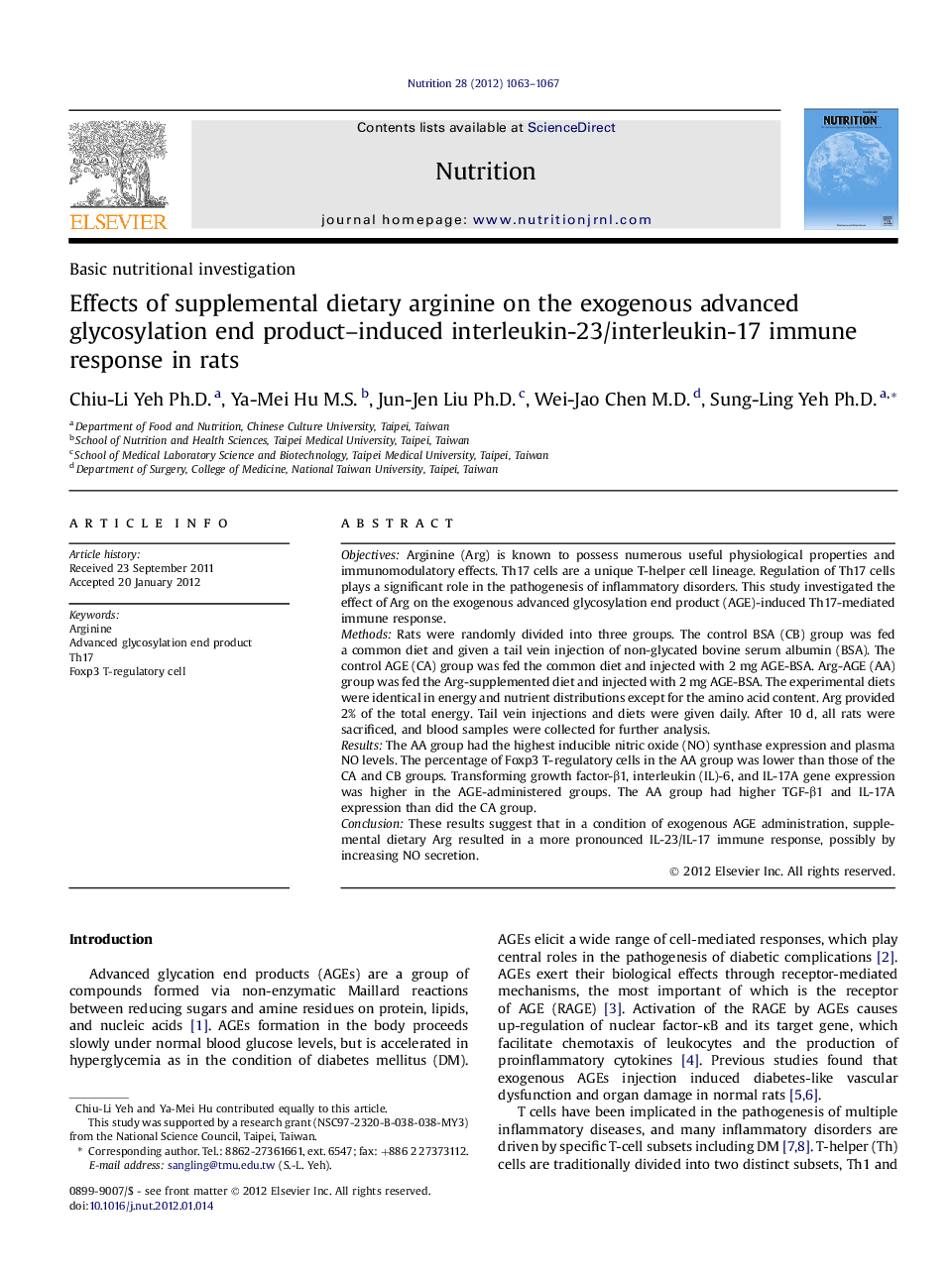| Article ID | Journal | Published Year | Pages | File Type |
|---|---|---|---|---|
| 6090264 | Nutrition | 2012 | 5 Pages |
ObjectivesArginine (Arg) is known to possess numerous useful physiological properties and immunomodulatory effects. Th17 cells are a unique T-helper cell lineage. Regulation of Th17 cells plays a significant role in the pathogenesis of inflammatory disorders. This study investigated the effect of Arg on the exogenous advanced glycosylation end product (AGE)-induced Th17-mediated immune response.MethodsRats were randomly divided into three groups. The control BSA (CB) group was fed a common diet and given a tail vein injection of non-glycated bovine serum albumin (BSA). The control AGE (CA) group was fed the common diet and injected with 2 mg AGE-BSA. Arg-AGE (AA) group was fed the Arg-supplemented diet and injected with 2 mg AGE-BSA. The experimental diets were identical in energy and nutrient distributions except for the amino acid content. Arg provided 2% of the total energy. Tail vein injections and diets were given daily. After 10 d, all rats were sacrificed, and blood samples were collected for further analysis.ResultsThe AA group had the highest inducible nitric oxide (NO) synthase expression and plasma NO levels. The percentage of Foxp3 T-regulatory cells in the AA group was lower than those of the CA and CB groups. Transforming growth factor-β1, interleukin (IL)-6, and IL-17A gene expression was higher in the AGE-administered groups. The AA group had higher TGF-β1 and IL-17A expression than did the CA group.ConclusionThese results suggest that in a condition of exogenous AGE administration, supplemental dietary Arg resulted in a more pronounced IL-23/IL-17 immune response, possibly by increasing NO secretion.
